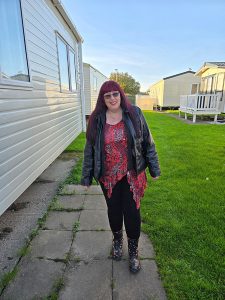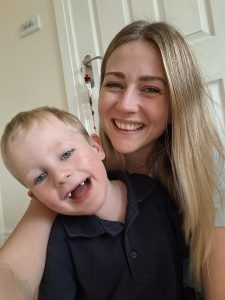 Feeling seen, heard and understood is an incredibly powerful thing in all aspects of life. Sharing with the friend who’s also been through a break-up. Unloading to the colleague who’s also overwhelmed with the workload. Venting with the parent who’s also struggling with the mental load. That instant understanding is validating. It’s a relief.
Feeling seen, heard and understood is an incredibly powerful thing in all aspects of life. Sharing with the friend who’s also been through a break-up. Unloading to the colleague who’s also overwhelmed with the workload. Venting with the parent who’s also struggling with the mental load. That instant understanding is validating. It’s a relief.
And it is exponentially more so for people struggling with the challenges of a condition famous for being invisible, unspoken about and often fundamentally misunderstood.
And Epilepsy Action’s 1:1 Peer Support service can bring you just that. You are matched up with a trained volunteer and have weekly phone calls for 12 weeks, free to talk through all your epilepsy troubles.
This Befriending week, why not give it a go? You have nothing to lose, and, like Sharon and Katie, you have a whole lot to gain.
“Better in myself”
Sharon, 51, from Skegness, has had epilepsy almost all her life, after getting struck by lightning as a child. The lightning strike left her unconscious for a few seconds, with a blue line running around her body and a “horrible, itchy feeling”. A few days later, her seizures started.
Sharon has photosensitive epilepsy, experiencing tonic-clonic seizures right from the beginning. Over the years, epilepsy has affected her memory, work and friendships, but she learned how to live with her condition, even getting polarised, mirrored sunglasses that help reduce the effect of lights for her.
However, in 2016, Sharon’s seizures started changing. She started being able to hear during seizures, and after a hospital stay, she found out she also has focal seizures. Over time, she started to be aware during most of her seizures.
She explained: “As an example, one time I was sat on a chair [during a seizure]. I knew I was falling off the chair, but I couldn’t stop myself because I had no control of my body. I could feel my face being pulled.
“You can feel yourself jolting, you can feel everything, you’ve just got no control. I had trouble breathing during the seizure as well, and I felt my throat being pulled inwards.
“It scared the living daylights out of me. That’s why I phoned Epilepsy Action.”
Sharon was referred for the 1:1 Peer Support service. She said: “It was nice to actually speak to somebody that had the same experience with the same epilepsy.
“The person I spoke to was brilliant. He was lovely to speak to and he made me feel better in myself. He’d cheer me up, he was brilliant, he really did help me a lot.
“He did help me understand a bit more about what was happening. But I did it more because I was scared. He gave me a bit more confidence.”
Invaluable experience
 Four-year-old George loves the outdoors – cycling, riding his motorbike, fishing – along with the colour red, crafts and getting messy. He is also a wonderful big brother to his baby brother.
Four-year-old George loves the outdoors – cycling, riding his motorbike, fishing – along with the colour red, crafts and getting messy. He is also a wonderful big brother to his baby brother.
George was diagnosed with epilepsy a year ago after starting to have tonic-clonic seizures. His mum Katie, 33, from Cheshire, explained that his epilepsy changed with time, when he began also having tonic and atonic seizures.
“The drop attacks (atonic seizures) were particularly bad as they were so aggressive and violent. The main injury he had was that he knocked his four front teeth at the top out during a drop attack. We couldn’t eat at the dinner table for months as he would constantly split his head or chin open.”
Katie struggled with George’s diagnosis, feeling guilt and anxiety. Signing up for the 1:1 Peer Support service, Katie wanted to speak to another parent whose child also had myoclonic seizures.
“I was matched with a gentleman whose daughter has a really similar seizure profile to George. It has been a really emotional but really helpful process and I would feel so incredibly alone if it wasn’t for my match. Knowing that there is another child like George out there and that there is support and hope and some form of normal family life has just made me feel so much better.
“My experience with the service has been invaluable and my match has been so wonderful, I can’t thank him enough.”





